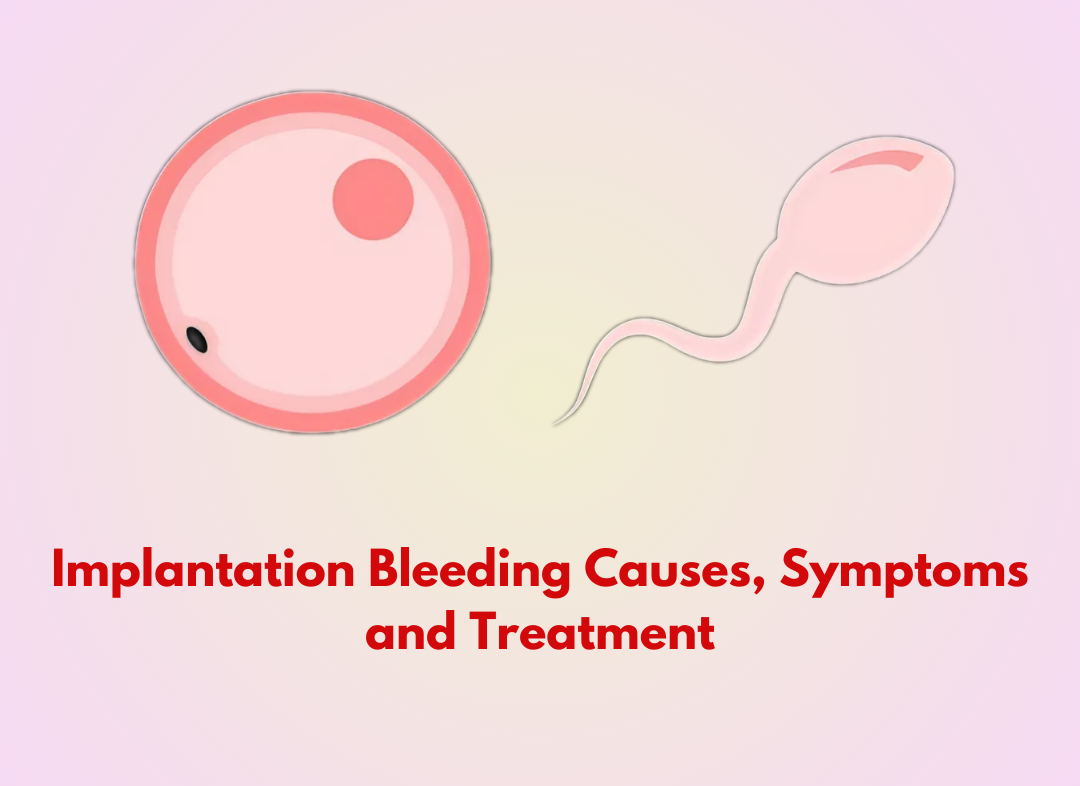Table of Contents
Implantation Bleeding Causes, Symptoms and Treatment
Implantation bleeding is a natural phenomenon that can occur in early pregnancy, and it is often one of the first signs that fertilization has been successful. While it is not experienced by every woman, understanding its causes, symptoms, and treatment options can help alleviate concerns and provide clarity during this critical time. Additionally, many women may wonder about other signs of successful implantation, particularly if they do not experience bleeding.
What is Implantation Bleeding?
Implantation bleeding happens when a fertilized egg becomes a blastocyst, gets itself into the uterine lining. This process typically happens between 6 to 12 days after ovulation and can cause light spotting or bleeding. Many women may mistake implantation bleeding for the beginning of their menstrual cycle, as the timing often coincides with when their period would normally begin.
According to a study published in the Journal of Reproductive Medicine, implantation bleeding occurs in about 25% of pregnancies, though it varies widely from woman to woman. It’s important to differentiate implantation bleeding from other types of bleeding to ensure proper care and understanding of the pregnancy process.
Causes of Implantation Bleeding
The primary cause of implantation bleeding is the physical process in which the fertilized egg attaches itself to the uterine lining. The uterine lining gets thick and rich in blood vessels. It happens in case of a possible pregnancy. When the blastocyst attaches, it can disrupt some of these vessels, leading to light bleeding.
Factors that may contribute to implantation bleeding include:
- Endometrial Lining Disruption: As the embryo attaches, the blood vessels in the uterine lining may be disturbed, causing slight spotting.
- Hormonal Fluctuations: The hormonal changes that occur after fertilization and implantation can also contribute to the bleeding.
- Uterine Sensitivity: The uterus is highly sensitive during early pregnancy, making slight bleeding more likely.
Symptoms of Implantation Bleeding
Many women may not experience implantation bleeding at all, but for those who do, the symptoms are generally mild. Some common symptoms include:
- Light Spotting or Bleeding: Implantation bleeding is typically light and not as heavy as a regular period. It can appear as pink, light red, or brown discharge.
- Mild Cramping: Some women report mild cramping that feels similar to menstrual cramps.
- Short Duration: Implantation bleeding typically lasts from a few hours to a few days and is not as prolonged as a regular menstrual period.
- Timing: It often occurs around the time a woman would expect her period but is usually lighter and shorter in duration.
Research from the American College of Obstetricians and Gynecologists (ACOG) indicates that implantation bleeding is typically not a cause for concern. However, women experiencing heavy bleeding or severe cramping should contact a healthcare provider, as these could be signs of a more serious condition.
Signs of Successful Implantation Without Bleeding
Not all women experience implantation bleeding, and its absence does not indicate that implantation was unsuccessful. In reality, most women who conceive do not have any bleeding. For women looking for other signs of successful implantation, there are several indicators to watch for:
- Mild Cramps: Even without bleeding, some women may feel mild cramping or discomfort in the lower abdomen due to implantation.
- Increased Basal Body Temperature: Many women tracking their basal body temperature may notice a slight rise that remains elevated after ovulation, indicating potential implantation.
- Breast Tenderness: Hormonal changes during early pregnancy can cause breast sensitivity, swelling, or tenderness.
- Fatigue: The body’s hormonal adjustments after implantation may lead to increased fatigue and tiredness.
- Frequent Urination: Hormonal changes can increase blood flow to the pelvic area, leading to more frequent trips to the bathroom.
Pregnancy Implantation Bleeding: When to See a Doctor
For most women, implantation bleeding is generally not a cause for concern and usually resolves naturally. However, it’s important to differentiate implantation bleeding from other causes of early pregnancy bleeding. Here are some scenarios in which consulting a healthcare provider is advisable:
- Heavy Bleeding: If the bleeding is heavy and more like a menstrual period, it may indicate a different issue, such as an early miscarriage or ectopic pregnancy.
- Prolonged Bleeding: Implantation bleeding should only last a few hours to a couple of days. If bleeding continues longer, it is worth seeking medical advice.
- Accompanied by Pain: Severe cramping or pain, especially on one side of the body, could indicate an ectopic pregnancy and requires immediate medical attention.
A healthcare provider may perform an ultrasound or blood test to confirm pregnancy and ensure the health of the mother and the developing embryo.
Treatment for Implantation Bleeding
There is generally no specific treatment required for implantation bleeding, as it usually resolves on its own. However, there are some steps women can take to ensure they are supporting a healthy early pregnancy:
- Rest and Relaxation: Taking it easy and avoiding strenuous activities can help the body focus on the early stages of pregnancy.
- Hydration: Staying hydrated is important for overall health and can support the pregnancy.
- Monitor Symptoms: Keeping an eye on the amount, color, and duration of the bleeding can help differentiate it from other potential issues.
In rare cases, if the bleeding is heavy or accompanied by severe symptoms, a healthcare provider may suggest interventions such as progesterone supplements or bed rest, depending on the underlying cause.
Conclusion
Implantation bleeding is a normal and natural part of early pregnancy for some women. While it can be confusing and worrisome, understanding its causes, symptoms, and treatment can provide peace of mind. For women who do not experience implantation bleeding, there are still several signs of successful implantation that can help confirm early pregnancy. Monitoring symptoms and consulting with a healthcare provider when necessary ensures that any concerns are addressed, contributing to a healthy pregnancy journey. As always, staying informed and seeking professional guidance when needed are key steps in ensuring both maternal and fetal well-being.
FAQs
- How long does implantation bleeding last?
Implantation bleeding typically lasts anywhere from a few hours to two days. It is generally much lighter than a regular menstrual period and may appear as pink or brown spotting.
- Can you have implantation without bleeding?
Yes, many women do not experience implantation bleeding. Successful implantation can occur without any visible symptoms like bleeding. Other signs of implantation may include mild cramping, fatigue, or breast tenderness.
- How can I tell the difference between implantation bleeding and menstrual bleeding?
Implantation bleeding is usually lighter in color and flow compared to a menstrual period. It tends to be light pink or brown. But a period blood is usually red and more substantial. Implantation bleeding also lasts for a shorter time and does not typically involve the heavy flow seen during menstruation.

